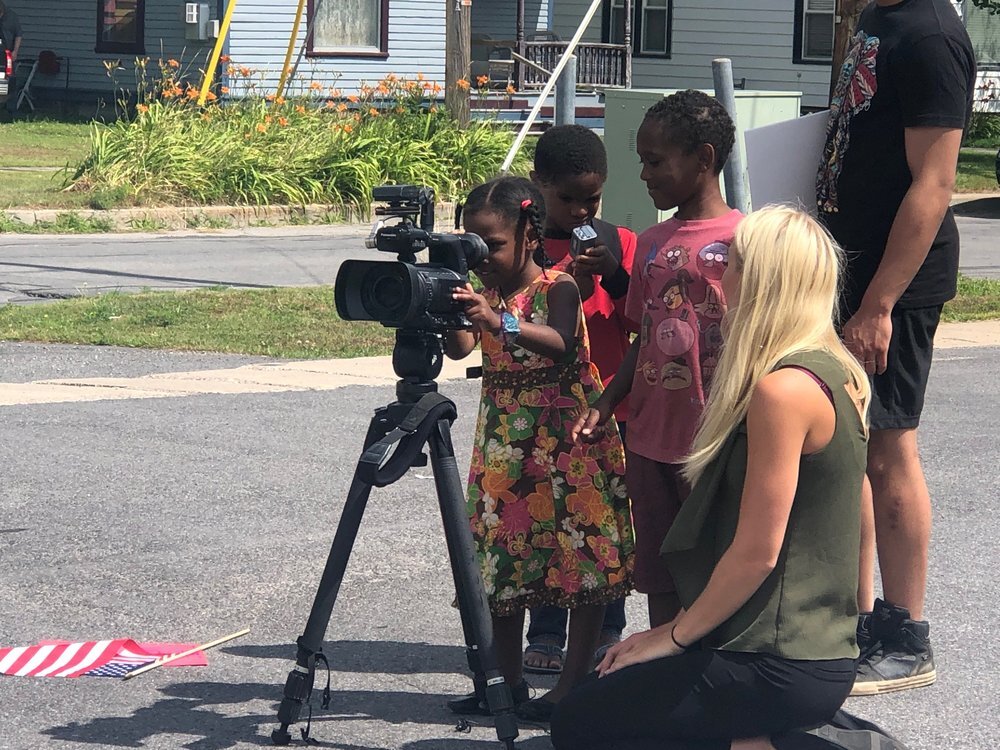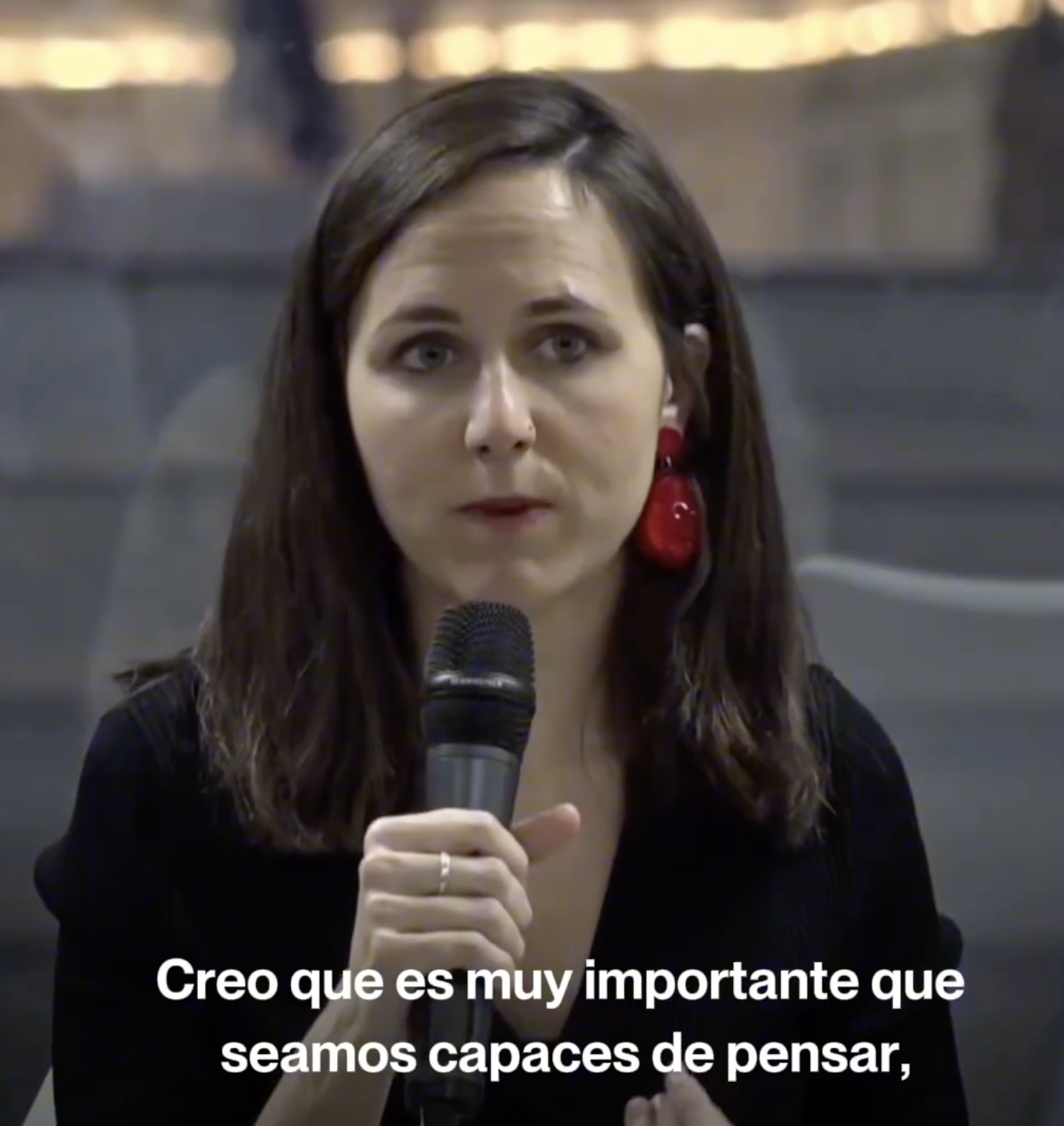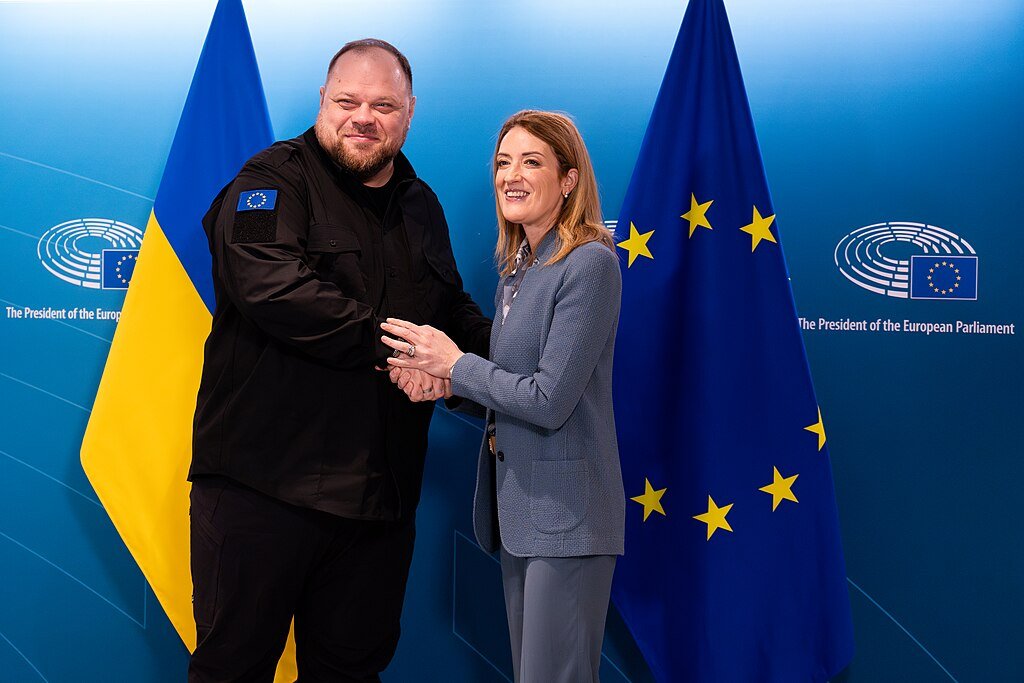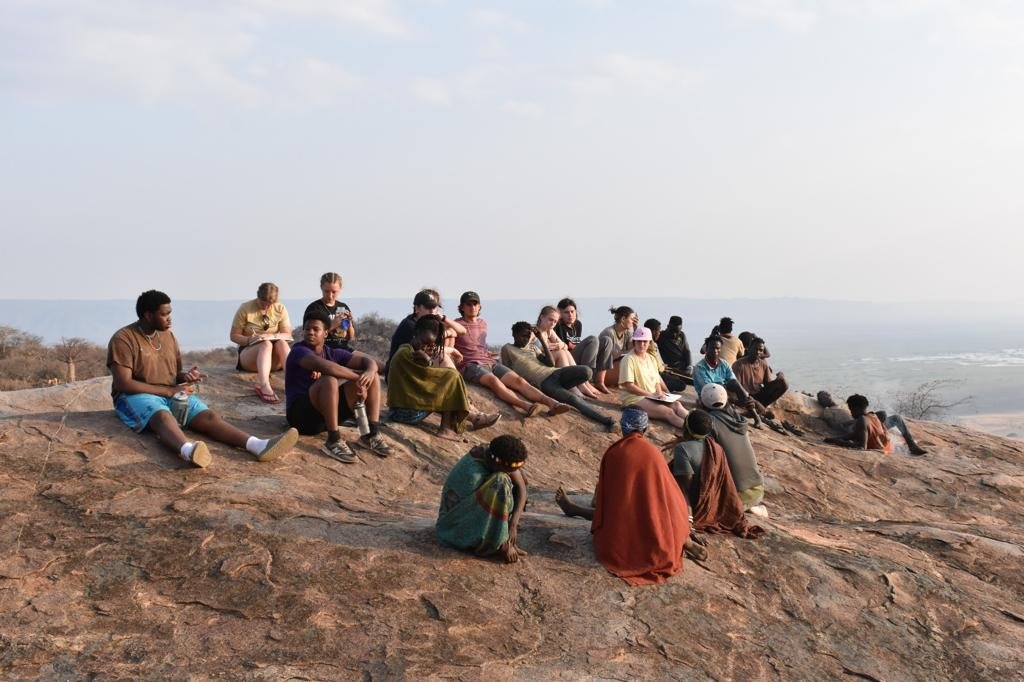
Stories
News

Analysis
Voices
Podcast
Announcements
Events

All Stories
AI Isn't Going to Cut Government Bureaucracy - It's Going to Vastly Worsen It
Trump is pushing a new artificial intelligence-driven bureaucracy to gut public services and use our data to exploit us, writes Ulises A. Mejias for Truthout.
Dreams and Nightmares: Georgia Navigates Russia-Europe Tensions in the South Caucasus
For the past few months, the world has been watching mass protests unfold in Georgia. These actions represent more than just opposition to the current government; they also reflect a deeper struggle over the country’s future. Caught between European integration and growing Russian influence, Georgians continue to push back against years of Kremlin-led democratic erosion. Their fight extends beyond Russia, shaping Georgia’s place in a shifting global order where the European Union (EU), the United States, and China also hold powerful influence.
Bodies in Revolt: The Everyday Resistance of Iranian Women to State Oppression
In this piece for Turning Point magazine, Gaia Guatri and Shekufe Ranjbar explore the ongoing struggles of Iranian women in the years since the start of the 2022 “Woman, Life, Freedom” movement and the subsequent wave of state repression.
On Euphemisms and Military Spending
According to the Real Academia Española, a euphemism is defined as a word or expression used in place of one that is harsh, unpleasant, or rude. Euphemisms are more and more rampant in political and economic debates (which is a way of describing what is often mere propaganda). The citizenry, passive and defenseless spectators, summoned only when there are elections and in the face of the enormous power of the mass media and social media, swallow them one after another, incorporating them into our everyday language as if they were undeniable truths.
Social Housing Journal: A Buffalo Story
The first time I ever heard the term “social housing” was at a Democratic Socialists of America (DSA) meeting in Buffalo, NY, in the fall of 2024. A former colleague of mine invited me to the meeting, which was hosted at Crane Branch Public Library in the Elmwood Village neighborhood where I live. Convening that day was the infrastructure subcommittee in the DSA’s Buffalo Chapter. They were discussing housing issues, which have been a professional interest of mine since my first job in public policy in 2016.
A Social Housing Development Authority for New York State
On February 6, 2024, New York State (NYS) Senator Cordell Cleare, a Democrat in the 30th Senate DIstrict (including Harlem), introduced Senate Bill 2023-S8494 to establish “the New York State social housing development authority as a public benefit corporation to increase the supply of permanently affordable housing in the state through the acquisition of land and renovation or rehabilitation of existing real property, and through the construction of new, permanently affordable housing.”
Where Are You Going, Europe?
And now what? It seems the new US administration has taken the initiative to bring an end to the war in Ukraine. This represents an important shift from the policy developed by Joe Biden, which consisted of promoting and fueling the conflict and trying to put Russia, and in the process Europe, on the ropes.
Audaciously Hoping: Independent, Grassroots, and Global Perspectives on Social Housing
Let’s examine what we know about social housing. Here I have curated a variety of articles by independent news outlets which have reported on social housing developments “glocally” (that is, locally and around the globe). We selected independent news outlets because they dare to examine the issue via ideas that challenge the status quo. Mainstream (or legacy) media have reported on social housing, too, but their bias is toward capitalist market solutions for the housing crisis. In this context, social housing is casually dismissed as a viable housing strategy. If you read independent media, however, social housing receives treatment as one of many viable housing strategies that can help New Yorkers and other Americans.
We Have Entered the Era of ‘Global Boiling’ - Marine Wildlife, Ecosystems, and Economies Are Being Devastated
Marine heat waves are causing record-breaking ocean temperatures that kill animals and impact ocean-based industries.
The European Flag Against Trump?
We are witnessing the spectacular and, so far, unstoppable rise of all forms of fascism. We find the most recent act of this drama in the United States with the victory in the recent elections of the Republican Party led by Donald Trump, whose electoral program, even beyond demagoguery and grandiose statements, did not hide its intentions and is already being carried out.
Hungary’s Asylum Policy: A Regional Dilemma With Global Implications
On June 13, 2024, the European Court of Justice (ECJ) fined Hungary 200 million euros and imposed a daily penalty of one million Euros for failing to follow the EU’s asylum laws and for illegally deporting migrants. The ECJ stated that Hungary had committed an "unprecedented and exceptionally serious breach of EU law" by restricting refugees’ right to seek asylum.
Invisible Borders, Vital Care: How Migrant Women Sustain Europe’s Aging Societies
As Europe grapples with an aging population and declining birth rates, migrant women have become indispensable to the care work industry; filling critical gaps in caregiving roles. According to the International Labor Organization (ILO), there are approximately 169 million international migrant workers worldwide, with nearly 80% of women in this workforce employed in the services sector, including care work.
Echoes & Algorithms: Stories Beyond the Code
In the second installment of Echoes & Algorithms, we examine the evolving relationship between artificial intelligence and grassroots journalism. At the heart of this exploration lies a pivotal question: How do AI's ability to process vast amounts of data and its challenges in understanding human complexity influence the narratives of grassroots journalism?
California Fires: Independent, Grassroots, and Global Perspectives (UPDATING)
As apocalyptic wildfires continue to burn and proliferate in and around Los Angeles, CA, it is important to seek out coverage and perspectives that help contextualize the story, connect it with larger structures and processes such as the world’s escalating climate crisis, and point readers toward opportunities to provide grassroots support. Below we are curating and aggregating important coverage from US-based independent and grassroots media outlets and also from global outlets that are looking at events from outside the US.
Decoding ‘The Media and Me’ (Book Review)
As a professionally trained historian, it’s important for me to introduce my review of The Media and Me: A Guide to Critical Media Literacy for Young People with commentary and analysis on the Philip L. Graham quote: “News is the first rough draft of history.” Graham, former president and publisher of the Washington Post, was reported to have made this claim in 1963, and it has been memorialized as an evocation of journalists’ front line role in the production of history. The quote has been cited as a way to appreciate journalists as the first to document the people, places, and things that matter to the history of a given society – as providing evidence of happenings and a lens through which to view them.
Grassroots Media as Mutual Aid: Breaking the Hold of Information Pollution
The result of the recent US elections provides further confirmation that what we are witnessing in much of the world is the consolidation of a 21st century form of fascist authoritarianism grounded in the rising power of Big Tech as well as resurgent forms of racism, misogyny, and xenophobia. But it is also an elite project of meeting present and future climate crisis, with all of its horrifying ripple effects, through mass violence (including genocide) and mass manipulation. What does such a moment mean for those of us who work in grassroots and independent media? What does it demand of us?
Trump, Europe, and Military Spending
It is clear that Donald Trump's broad victory in the US elections will have – and already has, in fact – important economic, social and political consequences, both in the United States and on a global scale. And, of course, it also affects Europe.
Echoes & Algorithms: AI’s Impact on Grassroots Journalism
The rise of AI in journalism comes at a time when traditional media outlets are grappling with dwindling resources, financial instability, and a crisis of public trust. For grassroots journalism, which has historically operated outside these institutional frameworks, the integration of AI presents distinctive opportunities and challenges. As AI becomes more prevalent in content creation, information sourcing, and analysis, we must ask: How does AI influence the identity of grassroots journalism, and what impact does this have on its mission of amplifying marginalized voices?
NYS Child Care and Governor Hochul at the Democratic National Convention
On August 19, 2024, New York State Governor Kathy Hochul delivered a spirited speech in support of the presidential hopeful Kamala Harris at the Democratic National Convention in Chicago, Illinois. Quite surprisingly, Governor Hochul raised the specter of runaway child care costs as a common issue facing middle class Americans, which, in turn, raised questions about what the governor of New York will do to lower these costs here in the Empire State.
Flowers of Buffalo: A Postscript
It’s August now, and all the flower fans who visited Buffalo’s 30th annual Garden Walk Buffalo festivities are somewhere enjoying the hundreds of pictures they undoubtedly took walking in neighborhoods like mine. I live in the Bryant neighborhood, where the founders of Garden Walk live on the appropriately named “Garden Walk Way.”






































































































